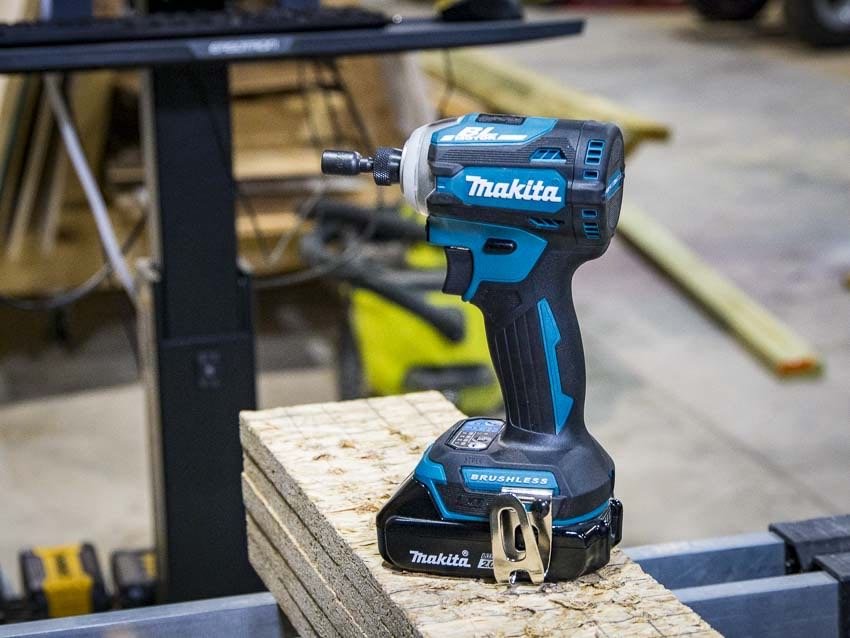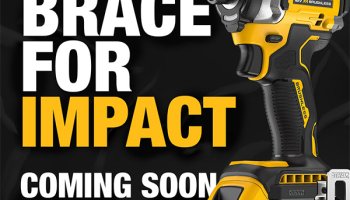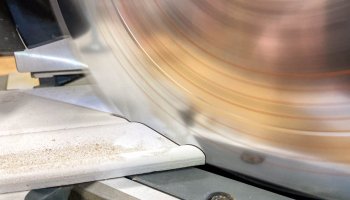
How Much Torque Do You Need on an Impact Driver? More Is Always Better, Right?
In today’s world of power tools, pushing the envelope of more power is more than just a 1990’s Tim Allen sitcom. When you look at two impact drivers with the same price tag, and one has more power than the other, you want more power, right?
Maybe not.
High-Torque Impact Driver Pros
- High-torque impact drivers can replace the need for a light-duty impact wrench
- Perfectly capable of general screwdriving in lower speeds
High-Torque Impact Driver Cons
- Requires an adapter that breaks easily on hard metal fastening
Recommendation
Generally speaking, an impact driver with 1500–1800 in-lbs of torque puts more emphasis on higher RPM. It will do 95% of the work more quickly than a tool with more torque and slower speeds.
Our rule of thumb is that, if you need to reach for a socket adapter, you’re better off grabbing an impact wrench.
What an Impact Driver Does
Most manufacturers expect their impact driver to drive screws. Self-tapping screws, deck screws, and structural screws (ledger or timber screws) make up the largest group of fasteners we use. Anything much bigger than that forces us from screwdriving bits and nut drivers to sockets.

The most powerful impact drivers in our best impact driver reviews article crushed 2656 in-lbs of fastening and 4200 in-lbs of breakaway torque. A quick conversion to ft-lbs puts those figures at 221 and 350 ft-lbs, respectively.
In other words, they’re putting out light-duty impact wrench numbers. With that kind of power, you can skip the 3/8″ impact wrench. Just keep a 1/2″ on hand for larger fasteners. There’s no doubt that replacing a tool increases your impact driver’s value.
The Problem With Too Much Torque
But an increasing pile of broken 1/4″ hex to 1/2″ square drive adapters shows us the inherent problem with using an impact driver as an impact wrench replacement. When it comes to metal fastening in particular, you blow through adapters quickly.

They may only be a few dollars each, but after a few dozen, you’re getting to the price of a new impact wrench to pair with the batteries you already have.
So How Much Torque Do You Need on an Impact Driver?
We start consistently breaking adapters on impact drivers that spec 1700 in-lbs or more. An impact driver with more torque is absolutely still useable, though. We just bump down from full speed into one of the medium modes unless we’re driving large screws into wood.
Generally speaking, an impact driver with 1500–1800 in-lbs that puts more emphasis on higher RPM will do 95% of the work faster than one with more torque and slower speeds.
Our rule of thumb: If you need to reach for a socket adapter, you’re better off grabbing an impact wrench!






